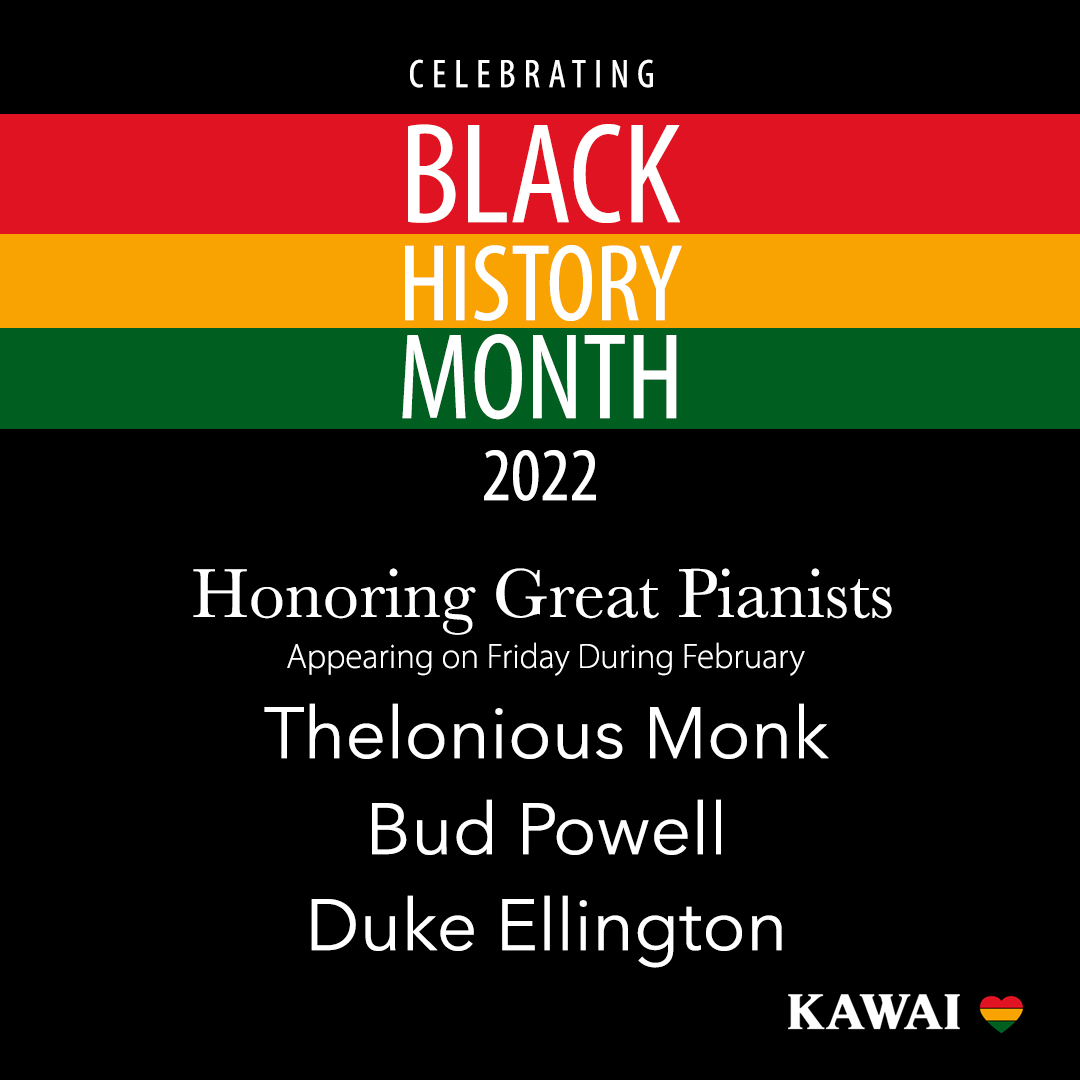
Kawai remembers Thelonious Monk, Bud Powell, and Duke Ellington in celebration of Black History Month.
Thelonious Monk began classical piano lessons at age eleven and by age 13 had won the talent contest at the Apollo Theater in Harlem so many times he was banned from entering the contest. At 17 he was touring with an evangelist/faith healer until he formed his own band.
As one of the founding fathers of modern jazz and bebop, Monk was known for his percussive and sometimes dissonant style of playing. He included James P Johnson and Duke Ellington as some of his musical influences. He preferred to work with small groups rather than big bands, and recorded albums for the Blue Note, Prestige and Riverside labels. His most popular compositions, “Blue Monk” and “Round Midnight” have become jazz standards.
Bud Powell was born in 1924 in Harlem, NY, and started taking classical piano lessons at the age of 5. By the time he was 10 his musical interests had shifted to swing. He started listening to live music in local clubs as a teenager, and it was at the Uptown House where Powell met Thelonious Monk. Monk took him on as his protégé and the two became good friends. Powell considered Monk his greatest mentor. In the late 1940’s and early 50s, Powell played on many recordings with jazz greats such as Sarah Vaughn, Dexter Gordon, Sonny Rollins, Max Roach, Miles Davis and many more. In his autobiography, Miles Davis referred to Bud Powell as “the best there was of all the bebop piano players”. Powell died in 1966 of tuberculosis.
Duke Ellington – whose given name was Edward Kennedy Ellington – was born in Washington DC and started playing the piano at age 7. By the age of 17 he was playing professionally. Around 1923 Ellington moved to New York and played the clubs with a six-piece band, which later grew to ten and then fourteen pieces. Throughout the 1930’s Ellington made hundreds of recordings, toured Europe twice and appeared in movies and on the radio.
Due to the large size of his orchestra, Ellington composed and arranged jazz pieces and popular pieces in unconventional ways, using new harmonies and unusual combinations of instruments. With his arranging partner Billy Strayhorn, Ellington wrote ‘Take The A Train’, ‘Don’t Get Around Much Anymore’, Mood Indigo’, ‘Satin Doll’ and countless other songs that have become cornerstones of the Great American Songbook. Ellington also scored several movies including ‘Anatomy of a Murder’ and ‘Paris Blues’.
Duke Ellington became fascinated with the idea of combining jazz and classical music. In 1943 he wrote “Black, Brown and Beige”, his portrayal of African-American history and later at the height of the civil rights movement composed the show “My People”, a celebration of African-American life.
Duke Ellington’s influence on 20th Century music cannot be understated. He was an accomplished pianist, an entertainer, a prolific composer as well as a trail blazer for other Black musicians to follow in his footsteps. He has a star on the Hollywood Walk of Fame, 14 Grammy Awards including a Lifetime Achievement Award, and the Medal of Freedom, presented to him in 1969 by President Richard Nixon. Duke Ellington was also the first Black American to be depicted alone on a US coin, on the reverse side of the 1986 issue of the D.C. quarter.
